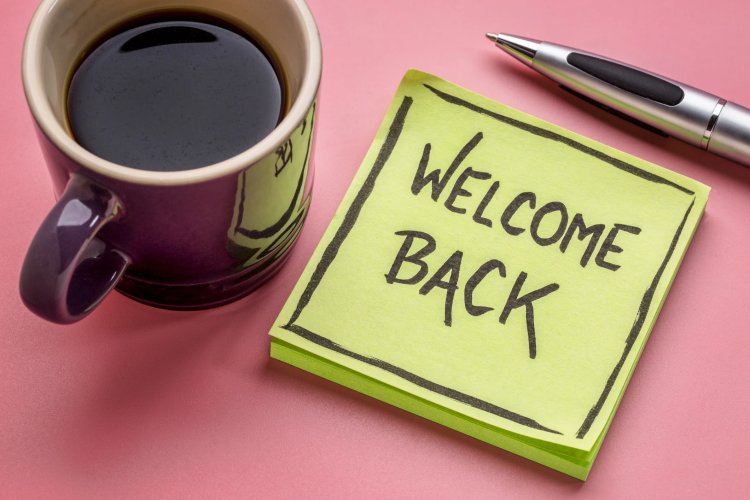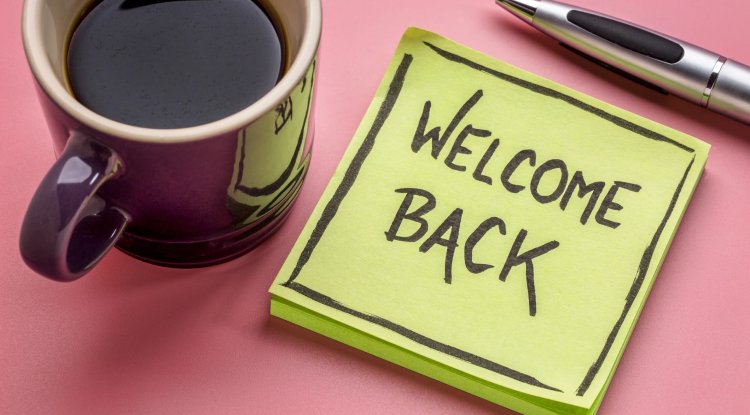How to Welcome Back a Colleague in Recovery: Kindness Over Perfection
When a teammate comes back after time away for mental health treatment or addiction recovery, things can feel… uncertain. You want to be kind, but you also don’t want to say the wrong thing. Do you ask how they’re feeling? Pretend nothing happened? Keep the small talk light and safe? None of it ever feels quite right and honestly, that’s okay. Feeling unsure just means you care enough to get it right.

The truth is, most of us were never really taught how to talk about recovery or mental health especially at work. For years, these conversations were whispered about, if they happened at all. But silence has a cost. It keeps people isolated when what they need most is understanding.
Letting Go of Old Stigma
Addiction has always been one of those topics that makes people uncomfortable. For decades, those struggling were unfairly labeled as weak or irresponsible as if willpower alone could cure an illness. We know better now. Addiction isn’t about bad choices or broken morals. It’s about biology, a condition that affects how the brain manages reward and control.
If a colleague returned after cancer treatment, you wouldn’t avoid them, whisper about them, or act like it never happened. You’d probably welcome them warmly and tell them how glad you are to see them again. People in recovery deserve the same kind of compassion.
Science tells us that addiction is treatable, that recovery is real. But society doesn’t change overnight. Even well-meaning people can carry old biases without realizing it. The real work starts with noticing those thoughts and quietly unlearning them.
What Real Support Looks Like

Supporting a colleague in recovery isn’t about saying the perfect thing, it's about showing up with humanity. Before they even walk back in, take a second to reflect. How do you really feel about addiction? What assumptions do you still hold? It’s okay if you notice some discomfort. Awareness is the first step toward growth.
When your coworker returns, understand what that day might feel like for them. It takes a lot of courage to come back to face familiar faces, familiar places, and whatever memories come with them. A simple, genuine “It’s really good to see you” can do more than you think.
A few gentle ways to support them:
Keep it genuine. You don’t have to make a big speech just mean what you say.
Respect their privacy. Let them share what they want, when they want.
Be there to listen. If they open up, let them talk. You don’t have to have answers.
Treat them normally. They’re not defined by what they’ve been through.
Recovery is personal. Some people talk openly about it; others prefer to just get back to work. Follow their lead. What matters most is that they feel safe, not singled out.
What Recovery Can Teach All of Us
Here’s something people often miss: those who’ve gone through recovery tend to bring a lot of emotional intelligence back with them. They’ve had to face hard truths, rebuild trust, and learn patience not just with others, but with themselves.
That kind of growth changes how a person listens, how they communicate, and how they lead. People in recovery frequently contribute self-awareness, humility, and empathy to their team's qualities that are essential for a productive workplace.
Rehab is more than simply abstinence. It is about finding purpose, connection, and self-respect again.
And that kind of clarity can quietly inspire everyone around them.
The Bottom Line
Welcoming a colleague back from recovery doesn’t require perfect words or big gestures. It just takes a bit of heart. A little tolerance, a little empathy, and the readiness to view the individual for who they are, not what they have done in the past.
We create more than just a "supportive" workplace when we choose compassion over judgment and curiosity over silence. We create a culture that embraces people for who they are, warts and all.
Perhaps we have been in need of that all along.
What's Your Reaction?




















